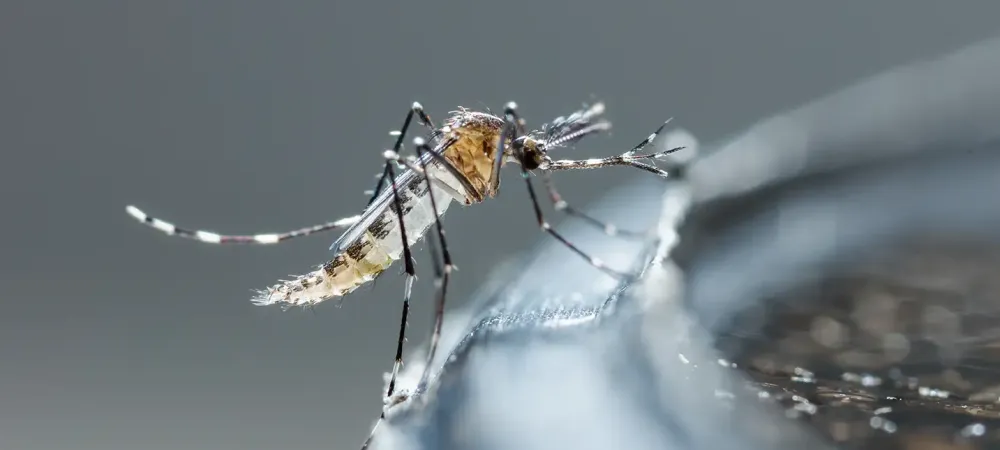Uncovering and Eliminating Mosquito Breeding Grounds Around Your Tennessee Home

That familiar high-pitched whine… the itchy red bumps that follow. For Tennessee residents, mosquitoes are an unwelcome guest during our beautiful warmer months. While swatting them away offers temporary relief, the real key to long-term mosquito control in Tennessee lies in understanding where do mosquitoes lay eggs and taking action to eliminate these breeding sites. By tackling the problem at its source, you can significantly reduce backyard mosquitoes and enjoy a more bite-free existence.
The mosquito life cycle begins in water. Female mosquitoes lay their eggs in standing water, and these eggs hatch into larvae, then pupae, before emerging as the buzzing adults we all know and loathe. Disrupting this cycle by eliminating their breeding ground is the most effective way to achieve lasting mosquito prevention in Tennessee. Let's explore some common mosquito breeding sites you might be overlooking.
Why Tennessee is a Mosquito Hotspot
Our Volunteer State, with its humid summers and ample rainfall, unfortunately provides ideal conditions for Tennessee mosquitoes to thrive. The warm temperatures speed up their life cycle, and frequent showers create numerous opportunities for standing water to accumulate. Furthermore, our diverse landscape, from the Mississippi River to the Great Smoky Mountains, offers a variety of aquatic habitats where different mosquito species can breed. While specific prevalent species can vary across the state, understanding their general breeding habits is crucial for all Tennessee homeowners.
Common Outdoor Mosquito Breeding Sites in Tennessee
The majority of mosquito problems around your home stem from easily overlooked sources of standing water. Let's take a closer look at some specific examples.
Standing Water in Containers
Consider those flower pots and saucers around your patio; while they add beauty, ensure you're checking underneath them, as saucers often collect excess water, creating perfect breeding pools. Don't forget about buckets and watering cans left outside – these can quickly fill with rainwater, so remember to empty them and store them upside down. Even children's toys left outside, like kiddie pools and wagons, can hold enough water for mosquitoes to breed. For your furry friends, their pet water dishes are essential, but they should be cleaned and refilled daily to prevent mosquito larvae from developing. Take a look at your trash cans and recycling bins as well; ensure lids fit tightly and that there are no holes where water can accumulate, especially after a downpour. Remember, that old tire pile in your backyard in Memphis can become a breeding ground for dozens of mosquitoes after a rain shower.
Water Features
Water features, while aesthetically pleasing, can also be mosquito nurseries if not properly maintained. Bird baths are popular spots for mosquitoes to lay eggs, so the key is to change the water regularly – every few days – to disrupt the breeding cycle. While that bird bath in your Nashville garden adds charm, it needs fresh water frequently to prevent mosquito larvae. If you have fountains, ensure they are circulating water properly, as stagnant areas within them can still attract mosquitoes. For ponds and water gardens, while larger ecosystems can sometimes support natural mosquito predators, smaller or poorly maintained ones can become breeding grounds. Consider introducing mosquito-eating fish or using Bacillus thuringiensis (Bt) products, which are safe for other wildlife.
Drainage Issues
Problems with water runoff around your property can create unintended breeding sites. Clogged gutters, filled with leaves and debris, can block water flow, causing rainwater to pool and stagnate. Those clogged gutters on your Knoxville home might be hiding hundreds of mosquito eggs you don't even know about, so regular cleaning is essential. Also, be mindful of poor drainage in yards, as low-lying areas that collect rainwater can remain wet for extended periods, providing ample breeding opportunities. Even small, persistent puddles from a leaky outdoor faucet or hose can be enough for mosquitoes to lay their eggs.
Recreational Water
Even sources meant for fun need attention. Swimming pools require proper chlorination and circulation to prevent mosquito breeding, and remember to cover your pool when it's not in use to prevent rainwater accumulation. Wading pools should be emptied immediately after use and stored upside down. Finally, rainwater can collect in the folds of boat covers, creating stagnant pools.
Less Obvious Spots
Be vigilant for less obvious water collectors too, such as natural depressions in tree holes, tarps or plastic sheeting that aren't stretched tightly and thus pool rainwater, and even wheelbarrows stored uncovered.
Indoor Mosquito Breeding Sites (Less Common, but Important)
While less frequent, mosquitoes can also breed indoors if you have stagnant water in basements or crawl spaces due to leaks or high humidity. Remember to change the water in your vases with cut flowers every couple of days. Also, check drip trays under refrigerators or air conditioners to ensure they are not overflowing with stagnant water.
How Tennessee Residents Can Eliminate Breeding Sites
Taking proactive steps around your Tennessee home is the most effective way to reduce mosquito populations. Here’s your action plan:
- Tip and toss any standing water at least once a week. This simple act disrupts the mosquito life cycle.
- Clean out gutters regularly, especially after leaf fall. Prevent water from pooling by ensuring clear drainage.
- Change water in bird baths and pet dishes every few days. Don't give those larvae a chance to hatch!
- Ensure proper drainage in yards. Fill in low spots or create pathways for water to flow.
- Cover or empty items that can collect water. Be proactive in eliminating potential breeding grounds.
- Maintain swimming pools properly. Keep them chlorinated and covered when not in use.
- Consider using mosquito dunks (containing Bt) in areas where water cannot be easily emptied, such as ponds or rain barrels. Bt is a natural bacterium that specifically targets mosquito larvae.
- For persistent mosquito problems, don't hesitate to contact local pest control Tennessee professionals for expert advice and treatment options.
Profesional Mosquito Control
Enjoying your outdoor spaces in Tennessee shouldn't mean constantly battling mosquitoes. By understanding where mosquitoes lay eggs and taking consistent steps to eliminate standing water around your property, you can significantly reduce their numbers and reclaim your backyard. Be vigilant, be proactive, and for comprehensive mosquito control, contact the experts at Sherrill Pest Control today!
